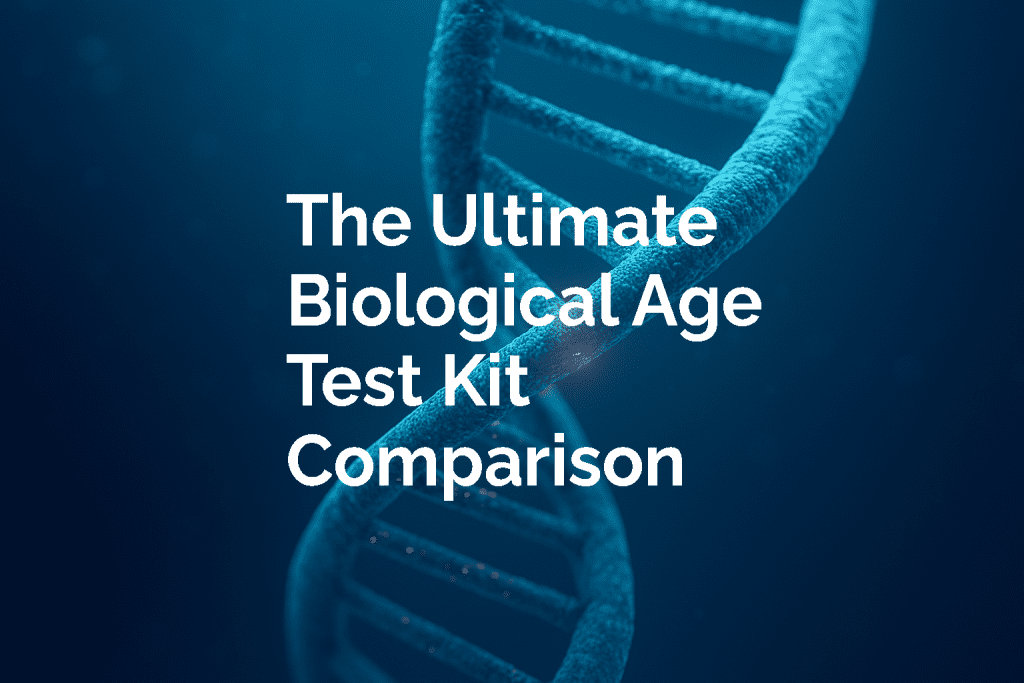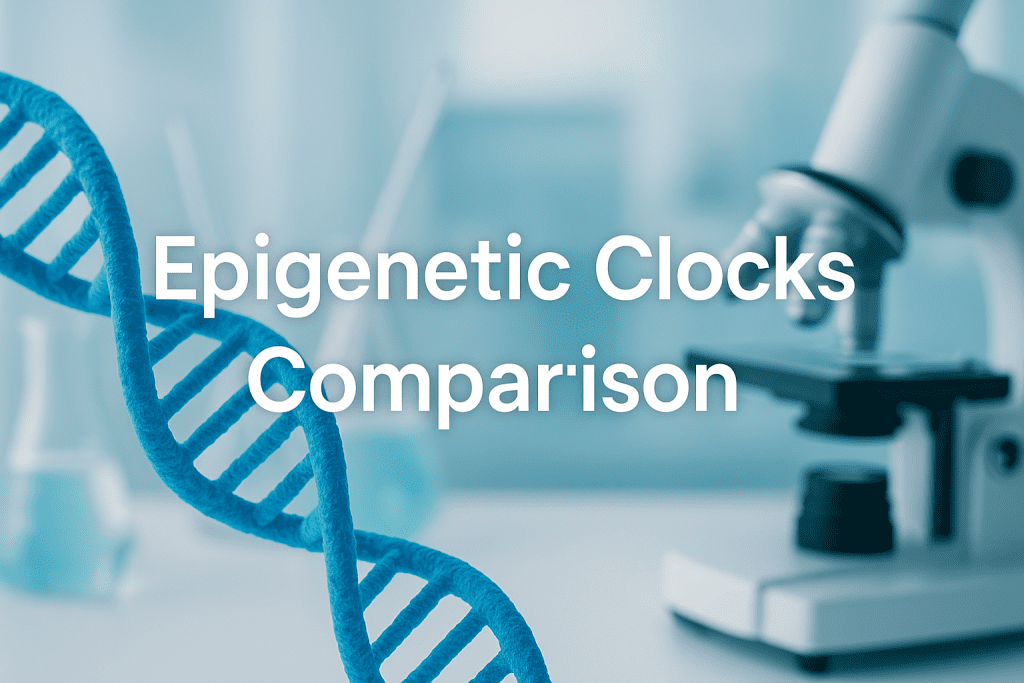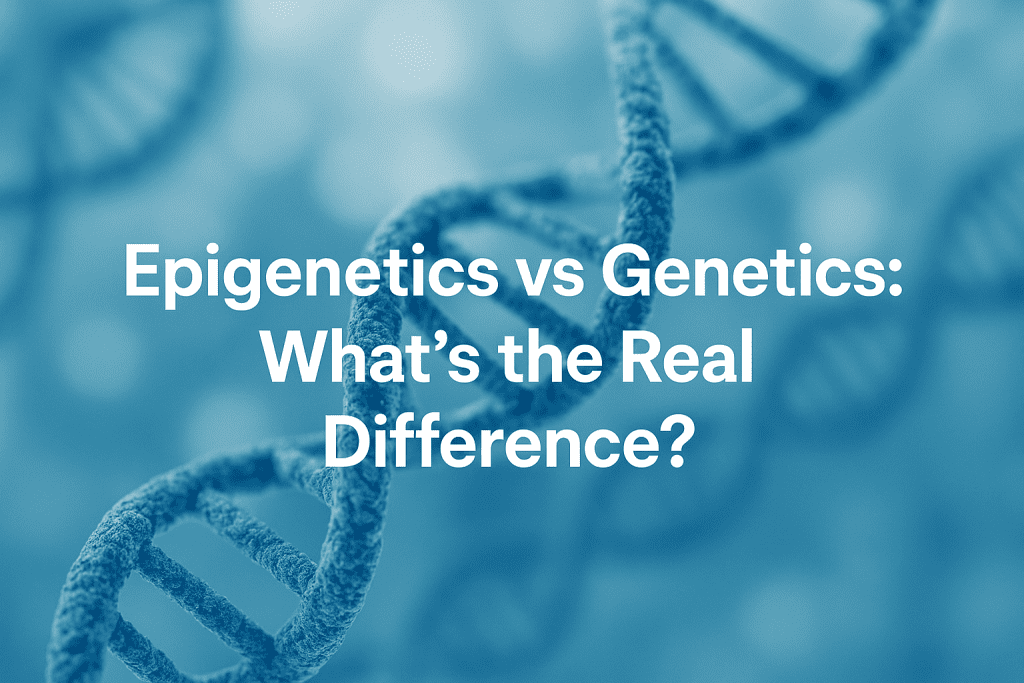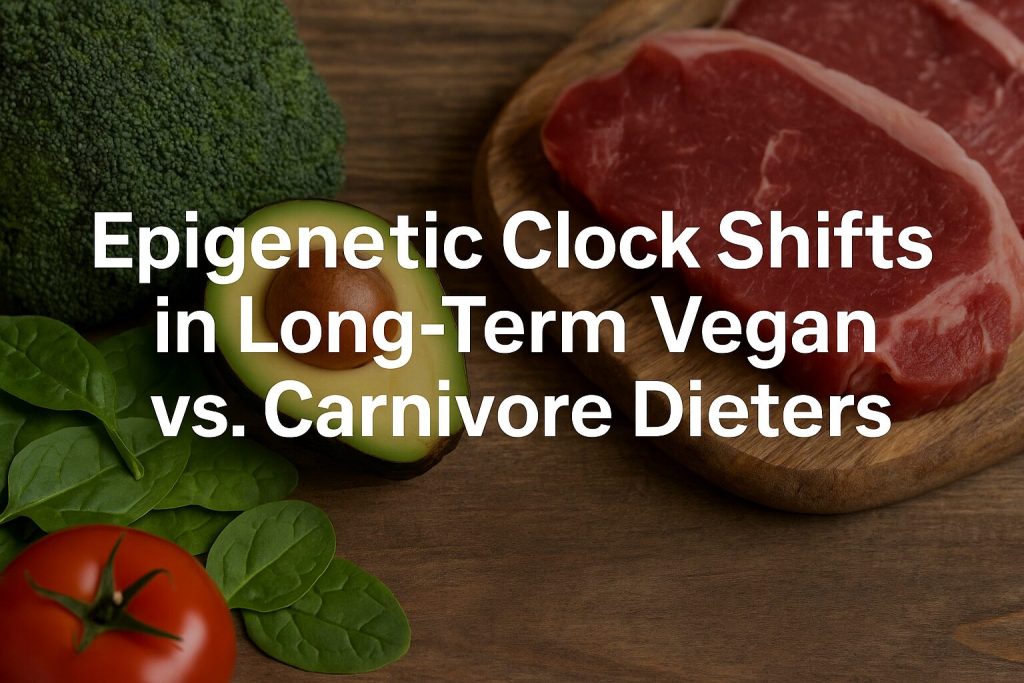
The epigenetic clock is one of the most accurate ways to measure your biological age: the real pace at which your body is aging, not just the number of birthdays you’ve had. It’s based on subtle changes in DNA methylation, chemical tags that turn genes on or off over time.
In this article, we look at the epigenetic clock diet effects of two of the most extreme eating patterns: long-term vegan diets and long-term carnivore diets: and what science says about their influence on aging.
Table of Contents
How Diet Shapes Epigenetic Clock Diet Effects and Biological Age
Most research on epigenetic clocks looks at broad lifestyle factors like smoking, exercise, or sleep. But diet can have a direct influence on methylation patterns through nutrient availability, inflammation, and even gut microbiome health.
Your epigenetic clock works like a biomarker-based calendar. Popular models like Horvath’s Clock or DunedinPACE compare your DNA methylation to reference datasets from thousands of people. Diet may shift this clock through:
🌱 Methyl donor nutrients (B12, folate, choline) that directly fuel methylation
🔥 Inflammation or oxidative stress from poor nutrient balance
🦠 Microbiome shifts that alter immune and metabolic aging
Key point: Extreme diets can push your biological age in either direction, younger or older, depending on how well nutrient needs are met and inflammation is controlled.
Carnivore vs Vegan: Which Diet Impacts Your Biological Age More?
Your biological age is shaped by what’s on your plate. A vegan diet can load your body with 🌱 antioxidants, 🦠 gut-friendly fiber, and anti-inflammatory compounds that may help keep your epigenetic clock ticking slower. But without B12, choline, and omega-3s, the benefits can stall.
A carnivore diet delivers plenty of complete proteins, 🐟 DHA/EPA from fish, and high B12 levels that support brain and nerve health. But a lack of fiber and plant compounds can raise inflammation risk if the meat quality or variety isn’t great.
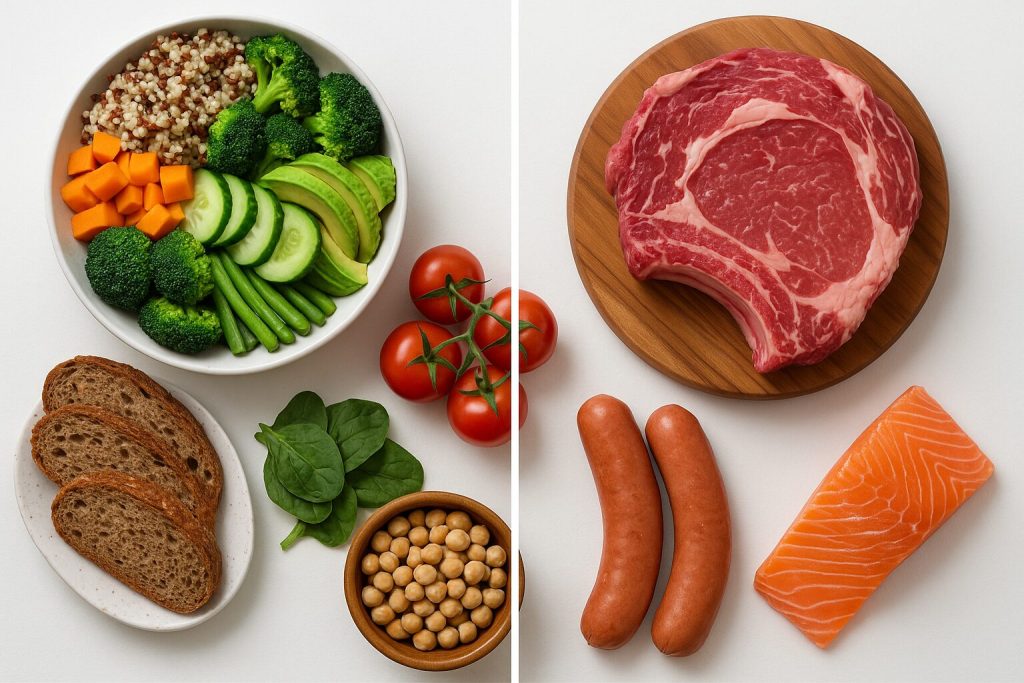
Epigenetic Clock Diet Effects of a Long-Term Vegan Diet
A vegan diet excludes all animal products: meat, dairy, eggs, and even honey. It’s rich in antioxidants, fiber, and plant polyphenols, which can protect against DNA damage and inflammation. But without planning, it can be low in methylation-supportive nutrients like B12, choline, and long-chain omega-3s (DHA/EPA).
✅ Possible benefits:
🍇 High antioxidant load may slow oxidative DNA damage
💪 Lower inflammation markers can lead to a younger immune age in tests like GlycanAge
⚖ Better metabolic health may slow your pace-of-aging score
⚠ Possible drawbacks:
🥦 B12 or choline deficiency can limit methylation capacity, aging the clock faster
🐟 Low DHA/EPA might impact brain aging metrics in multi-system tests like Elysium Index
A 2024 BMC Medicine trial in identical twins found that just 8 weeks on a vegan diet reduced epigenetic age acceleration, especially in heart, liver, and metabolic aging markers
Epigenetic Clock Diet Effects of a Long-Term Carnivore Diet
The carnivore diet is the opposite, all animal products, zero plants. It provides abundant B12, choline, and creatine, but no fiber or plant antioxidants.
✅ Possible benefits:
🥩 Strong methyl donor intake supports DNA methylation
🏋️♂️ High protein preserves muscle mass, improving functional age in tests like TruAge
📉 Very low carb intake stabilizes blood sugar, reducing glycation
⚠ Possible drawbacks:
🍏 No plant polyphenols means less antioxidant protection
❤️ Certain saturated fat patterns may worsen cardiovascular risk factors
🦠 Microbiome diversity can drop, potentially raising inflammation and methylation pace
While no direct studies exist on pure carnivore diets and epigenetic clocks, research on high-meat patterns shows both favorable and unfavorable methylation changes depending on nutrient balance and food quality.
Comparing the Two Diets
Both vegan and carnivore diets can be tailored to protect your epigenetic clock, but both have built-in risks if nutrient gaps aren’t addressed.
| Factor | Diet Comparison |
|---|---|
B12 & Choline |
🌱 Vegan: Often low
🥩 Carnivore: Abundant |
Antioxidants |
🌱 Vegan: High
🥩 Carnivore: Minimal |
DHA/EPA |
🌱 Vegan: Low (unless supplemented)
🥩 Carnivore: High (from fish) |
Fiber |
🌱 Vegan: High
🥩 Carnivore: None |
Methylation Support |
🌱 Vegan: Good if supplemented
🥩 Carnivore: Good naturally |
Inflammation Risk |
🌱 Vegan: Low if balanced
🥩 Carnivore: Higher if processed meat‑heavy |
If you want to track how your diet is influencing your biological age, see our Biological Age Test Comparison for accurate testing options.
Long-Term Strategies to Support Your Epigenetic Clock
For vegans:
💊 Supplement B12 and algae-derived DHA/EPA
🥦 Eat choline-rich plants like soy, quinoa, broccoli
🧪 Check homocysteine to monitor methylation status
For carnivore followers:
🥗 Include polyphenol-rich, low-carb plants if possible
🐟 Eat fatty fish for omega-3 balance
📊 Monitor hs-CRP and IL-6 to track inflammation
Testing every 6–12 months lets you see if your diet is actually slowing your aging pace.
Can These Diet Effects Be Reversed?
Yes. DNA methylation patterns are dynamic. Targeted dietary changes can improve biological age scores in months.
📅 In 2021, an Aging journal trial showed an 8-week plant-rich, methylation-supportive diet reversed biological age by 3 years on average.
💊 Correcting nutrient deficiencies can normalize methylation deficits within weeks.
Faqs
What is the best diet for slowing your epigenetic clock?
No single best diet, the priority is meeting all methylation-supportive nutrient needs and reducing inflammation.
Can I slow aging without supplements?
On extreme diets, supplements are often necessary to fill gaps.
Do epigenetic clocks predict lifespan?
They estimate biological age and healthspan risk, not exact years.
How often should I test biological age?
Every 6–12 months for tracking diet effects.
Which test is most accurate for diet-related changes?
Do gut microbes influence methylation?
Yes, the microbiome can affect inflammation and gene regulation.
Can fasting help?
Some evidence suggests intermittent fasting supports healthier methylation patterns, but diet quality matters.
Is fiber important for aging?
Yes, fiber improves gut health, lowers inflammation, and may slow methylation-based aging.

